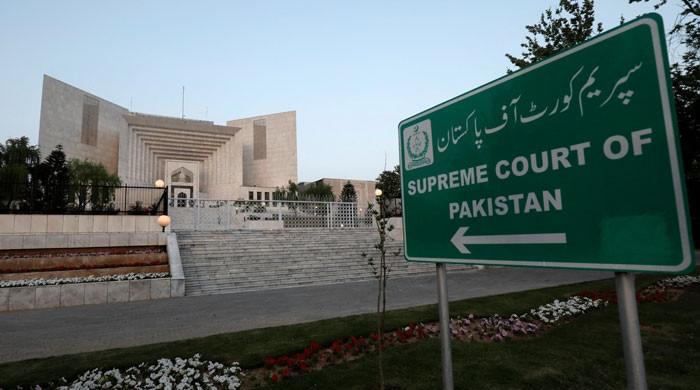Supreme Court to Resume Hearing on Reserved Seats Review Pleas
ISLAMABAD: The Supreme Court (SC) is set to recommence the hearing regarding review petitions filed against its verdict on July 12, 2024, which affirmed Pakistan Tehreek-e-Insaf’s (PTI) entitlement to reserved seats for women and minority representatives in both national and provincial legislative bodies.
The Election Commission of Pakistan (ECP), along with Pakistan Muslim League-Nawaz (PML-N), and Pakistan Peoples Party Parliamentarians (PPPP), had previously submitted review requests challenging the aforementioned ruling concerning reserved seats. An 11-member constitutional bench of the Supreme Court, under the guidance of Justice Aminuddin Khan, will preside over the case proceedings.
The bench’s composition includes Justices Jamal Khan Mandokhail, Muhammad Ali Mazhar, Musarat Hilali, Naeem Akhtar Afghan, Hassan Azhar Rizvi, Muhammad Hashim Khan Kakar, Shahid Bilal Hassan, Aamir Farooq, and Ali Baqar Najafi.
Faisal Siddiqui, representing the Sunni Ittehad Council (SIC), will persist in his arguments concerning the maintainability of the current review petitions.
In a related development, the PML-N augmented its review plea on Wednesday by introducing supplementary justifications, submitting a comprehensive application that references the original verdict in the reserved seats matter declared on July 12 of the preceding year.
Barrister Haris Azmat, counsel for the leading political party, contended that the July 12 decision on reserved seats inappropriately established judicial precedents, employing the authority granted by Article 187 of the Constitution in a manner that creates contradiction.
The PML-N asserted that “these powers stipulated under Article 187 are intended solely for utilization in ongoing cases to guarantee comprehensive justice.” They further noted that the SIC lodged an appeal involving 80 members to lay claim to reserved seats, but the court’s determination has left the SIC with no representation.
Furthermore, the PML-N argued that the authority granted by Article 187 is not without limitations, highlighting that the issues adjudicated by the court were not formally documented in the official court records.
“Moreover, none of the 80 members of the SIC appeared before the court,” the application stated, suggesting that the SIC and PTI should not be regarded as a unified political entity.
The PML-N clarified that all 80 candidates presented by the ECP contested as independent contenders, a point undisputed by any of the candidates themselves, who neither presented themselves before the court nor challenged this fact.
It was further stated that all 80 independent candidates have since aligned with the SIC, submitting affidavits to confirm their association. According to the PML-N, these individuals were neither formally implicated nor granted a hearing before the court.
Consequently, the PML-N appealed for the court to retract unilateral observations that deviate from the documented record, specifically those detailed from Paragraph No 106 onward.
Additionally, the submission addressed the situation of 41 candidates listed by the ECP, asserting that they displayed no affiliation with PTI in any section of the ECP List.
“It is shocking and surprising that the said candidates have been given 15 days to join any party,” the PML-N stated, emphasizing that the Constitution stipulates a three-day period from the date of their notification as a returned candidate for such affiliations.
The PML-N maintained that the aforementioned circumstances reveal two evident errors within the record: (i) independent candidates are being afforded the opportunity to join a party two months after the election, subsequent to their affiliation with another party; (ii) the courts lack the authority to amend constitutional provisions, which grant only three days as per Article 51(6)(d).
The PML-N contended that while the detailed reasoning seemingly acknowledges (Paragraph No66, 79, 80) the SIC’s ineligibility for reserved seats, the subsequent decision to grant these seats to PTI—an entity not present before the court nor having claimed them in lower forums—is inconsistent.
The party requested that the court rectify the recorded findings and permit the inclusion of these supplementary grounds in the interest of upholding justice.



Comments (0)
No comments yet. Be the first to comment!
Leave a Comment